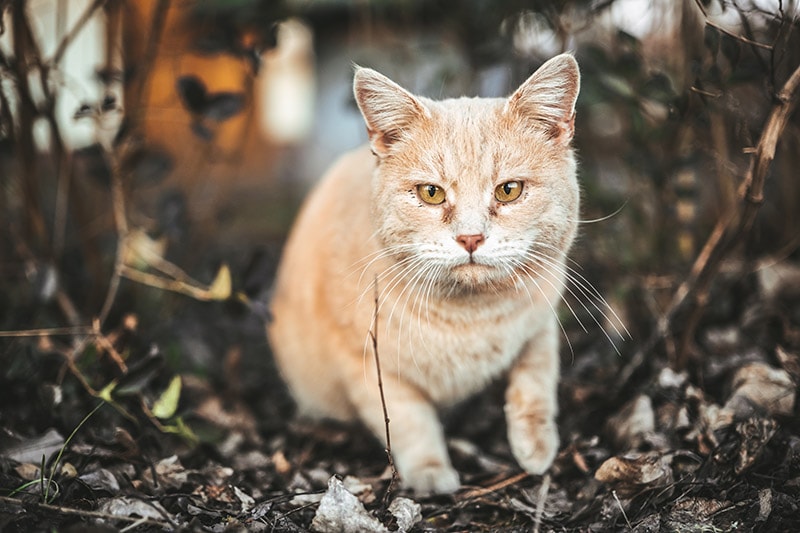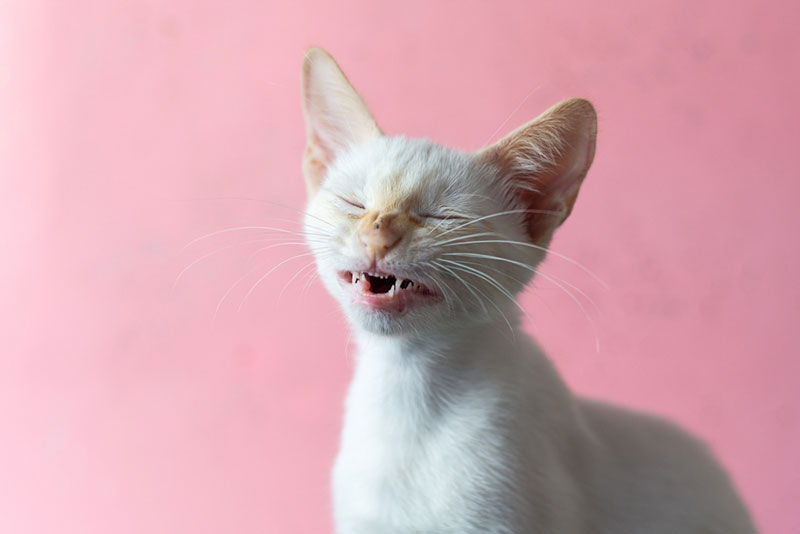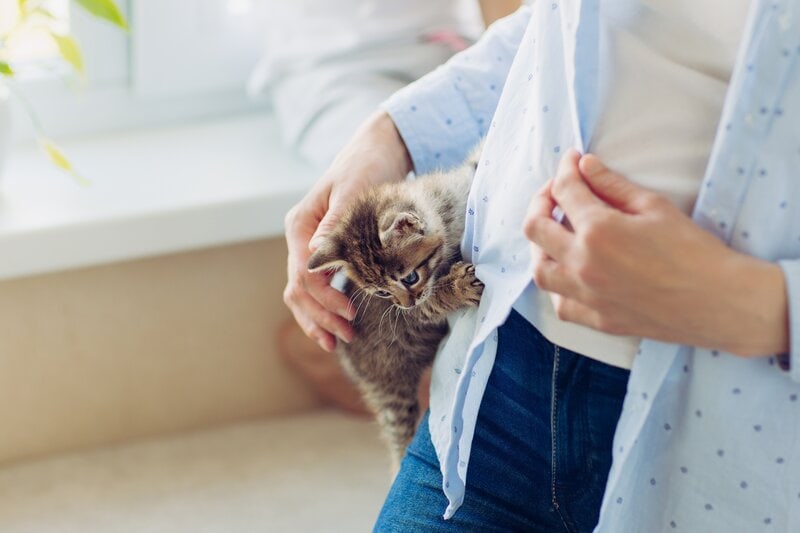Why Does My Cat Have Black Boogers? 4 Vet-Approved Common Reasons
Updated on

Click to Skip Ahead
The term “booger” often tends to make people laugh, especially kids! But when it comes to our beloved pets, this word doesn’t always equate to goofy and charming memories. In fact, noticing a few boogers around your cat’s nose can be a little distressing.
However, if your cat has black boogers, there’s usually no reason to panic. Most of the time, it is simply dried nasal mucus, mixed with a bit of dirt.
Read on to learn more about these mysterious intruders in your cat’s nose and what you can do to keep your feline friend booger free.
What Are Boogers?
Boogers are nothing more than dried nasal mucus. Mucus is produced by many living organisms, including all mammals, slugs and even bacteria and yeast! Boogers are basically mucus that has collected particles of dust, pollen, bacteria, and other substances and flowed into the nose where exposure to air has dried it out.
So for all their elegance and grace, cats can have boogers. That said, there is a difference between black boogers, which typically are benign mixtures of dirt and dried mucus, and black nasal discharge.
Nasal discharge may be a sign of an underlying health problem that requires a visit to the veterinarian. It can vary in color and consistency, but it is not the same as boogers.

The 4 Reasons That Your Cat Has Black Boogers
Now that you know more about dried mucus, let’s look at the possible reasons that your cat may have black boogers.
1. External Pollutants May Be the Culprits
One of the main reasons that your cat might develop black boogers is exposure to certain pollutants in their immediate environment. Just like us, their noses often come into contact with various particles in the air, including dust and dirt. When these pollutants build up in their nasal passages, they can mix with mucus, leading to the formation of dark-colored boogers.
2. Your Cat Is Allergic to Something
Just like humans, cats can suffer from allergies, which can manifest in various ways. Allergens like pollen, mold, dust, and even certain types of food can trigger an allergic reaction in your feline friend, leading to increased nasal discharge (or runny nose). If this fluid flow of mucus mixes with dirt or other particles, it may turn black, though this is rare.
Nasal discharge normally varies from a clear, runny liquid to thick, yellow, or green mucus. In any case, it is best to take your cat to the veterinarian if you notice such nasal discharge, especially if it is accompanied by fever, loss of appetite, or difficulty breathing.

3. Your Cat Has a Respiratory Infection
Respiratory infections, such as chronic upper respiratory infections, are potential causes of stuffy noses in cats. That said, nasal discharge related to infections tends to be higher in volume and yellow but can also be tinged with red or brownish-black. These infections can be caused by viruses like feline herpesvirus and calicivirus. Book an appointment with your vet if you notice your cat has an increased amount of nasal discharge, if they are unwell in themselves and/or if they are bunged up (stuffy).
4. Something Is Stuck in Your Cat’s Nose
Cats are known for their curiosity, and sometimes this special skill can lead them to explore places they shouldn’t. If your cat comes into contact with foreign objects like small pieces of rubber, plastic, or other materials, these can become lodged in their nasal passages, causing irritation, inflammation, and possibly the formation of black and/or bloody boogers.
Could Black Boogers Indicate Rhinitis in Cats?
Feline rhinitis is caused by inflammation of the mucous membranes of the nose. Mild cases may appear as a clear nasal discharge, while more severe cases may appear as a green, yellow, or even bloody discharge.
So, black boogers could theoretically come from these dried nasal discharges, but they would most likely be accompanied by other signs, such as sneezing, difficulty breathing, discharge from the eyes, and frequent snoring.

Tips for a Booger-Free Cat
Although keeping your cat completely free of boogers is impossible (or useful, given the protective role of mucus), there are a few things that you can do to prevent too much dirt from getting trapped in their nose:
- Brush your cat regularly to remove dead skin cells, dander, and dust particles that can contribute to the formation of boogers. This also allows you to keep tabs on your cat’s overall health.
- Maintain a clean and dust-free living environment for your kitty. Vacuum, dust, and try as much as possible to keep the air in your home clean to minimize the risk of contaminants entering your cat’s nasal passages.
- Identify and minimize potential allergens in your cat’s environment. This may include changing their food, using dust-free or hypoallergenic litter, or keeping them indoors during peak pollen seasons.
If you are concerned about your cat’s boogers or if you have noticed behavioral changes or other physical signs of concern, please consult your veterinarian promptly. Boogers are usually harmless, but sometimes they are a sign of an underlying health problem, so always seek advice from your vet if in doubt. You could also opt for some pet friendly wipes that can clean away eye and nose boogers without causing any harm or discomfort to your cat.
Giving your pet a quick bath is much easier using wet wipes, but you do need to make sure they're safe for your pet's skin. Our gentle, effective Hepper Wash Wipes are hypoallergenic and made with natural, moisturizing ingredients. Manufactured in the USA, these convenient wipes are safe for cats and dogs of all ages, sizes, and breeds.
Conclusion
Your cat’s black boogers are usually nothing to worry about, but it’s better to be safe than sorry. Whether it’s dust, allergies, or something more serious, being aware of it makes you a better cat owner. Keep things clean, pay attention to their behavior, and if anything seems wrong, don’t hesitate to consult your vet.
Featured Image Credit: husjur02, Shutterstock















